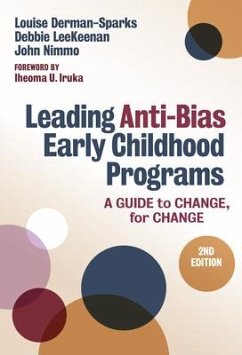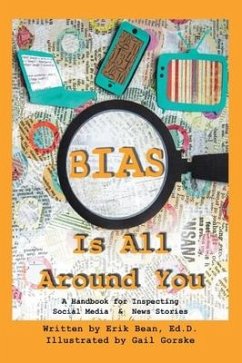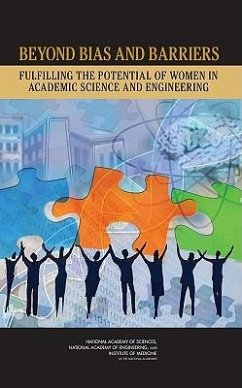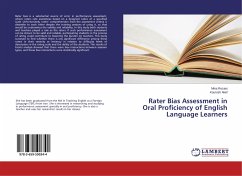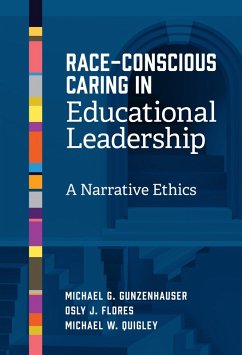
Unconscious Bias in Schools
A Developmental Approach to Exploring Race and Racism
Versandkostenfrei!
Versandfertig in über 4 Wochen
59,99 €
inkl. MwSt.

PAYBACK Punkte
30 °P sammeln!
Unconscious Bias in Schools describes the phenomenon of unconscious racial bias and how it negatively affects the work of educators and students. Through personal anecdotes and real-life scenarios, Tracey A. Benson and Sarah E. Fiarman provide an essential roadmap for addressing these issues directly. They draw on the literature on change management, leadership, critical race theory, and racial identity development to provide guidance for creating the conditions necessary to do this work--awareness, trust, and a "learner's stance." The book shows how information about unconscious bias can help...
Unconscious Bias in Schools describes the phenomenon of unconscious racial bias and how it negatively affects the work of educators and students. Through personal anecdotes and real-life scenarios, Tracey A. Benson and Sarah E. Fiarman provide an essential roadmap for addressing these issues directly. They draw on the literature on change management, leadership, critical race theory, and racial identity development to provide guidance for creating the conditions necessary to do this work--awareness, trust, and a "learner's stance." The book shows how information about unconscious bias can help shift conversations among educators to a more productive, collegial approach that has the potential to disrupt the patterns of perception that perpetuate racism and institutional injustice. "Rarely do we find educators willing to take on the essential topic of unconscious racial bias in such an honest and purposeful way. This book challenges readers to dig deep into the overwhelming presence of unconscious racial bias in our educational system and how it impacts students by perpetuating issues of power, privilege, and oppression. An excellent addition to the field." --Eddie Moore, Jr., founder and program director, The White Privilege Conference "Benson and Fiarman have drawn freely on their experiences as former principals to develop a very practical book. They subtly pull leaders into a developmental approach for addressing racism in schools using unconscious bias as a nonthreatening entry point. Still, they do not avoid challenging topics and skillfully aim their sights on the true reason to undertake this difficult work. --Mark Anthony Gooden, Christian A. Johnson Endeavor Professor in Education Leadership, Teachers College, Columbia University "Unconscious Bias in Schools should be required reading for every educator." --Debby Irving, author of Waking Up White, and Finding Myself in the Story of Race Tracey A. Benson is an assistant professor of educational leadership at the University of North Carolina at Charlotte, and a former public school teacher, middle school assistant principal, and high school principal. Sarah E. Fiarman is the director of leadership development for EL Education, and a former public school teacher, principal, and lecturer at Harvard Graduate School of Education.



